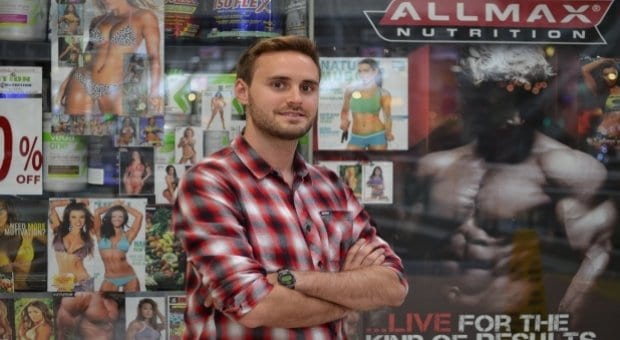New research on gay men and body image suggests that gay men may be less self-conscious than they once were.
Vancouver clinical counsellor Andrew Huber studied 144 gay men across Canada and found that immersion in gay culture had no measurable effect on the men’s preoccupation with their own appearance, how they felt about their looks, or how they rated parts of their bodies.
The only significant result, in fact, was a slight link between gay culture and self-consciousness about weight.
That stands at odds with decade-old research suggesting gay men are much more self-conscious and appearance-focused than their straight counterparts.
“What surprised me is how little the immersion in gay culture correlated to any of the scales,” says Huber, who conducted the study as his master’s thesis at the Adler School of Professional Psychology. “The more immersed you would be, I thought, the more time you would spend on your appearance, wanting to fit in.”
Huber asked his subjects to fill out an online questionnaire about their immersion in gay culture and feelings about their own bodies. Huber expected to find a strong correlation between socializing with other gay men and body anxiety.
Research told him that gay men — like most people — engage in “upward social comparison,” weighing themselves against the most attractive members of society. Among gay men, where lean, muscular bodies are celebrated, Huber expected to find more pressure to be attractive, more anxiety about looks, and more focus on physical appearance.
He thinks the unexpected results may suggest a shift in gay culture and a community that is more supportive about body image.
“Given my findings, people may not be getting their sense of self-worth from the gay community,” he says. “I think that now, in 2013, there can be very different standards of attractiveness. Look at the bear community, where someone might look very different from someone who’s part of the twink community, or the jock style.”
Huber’s study also looked at the way self-esteem interacts with body image among gay men. Not surprisingly, good body image was linked to high self-esteem, and body anxiety to low self-esteem.
Contrary to Huber’s predictions, however, self-esteem did nothing to change the slight relationship between involvement in the gay community and concern about body weight. In other words, gay men feel slightly more self-conscious about their weight the more they are surrounded by gay men — whether they have low self-esteem or not.
“That was a surprise as well,” Huber says. “To me that shows the complexity of [the gay community].”
He thinks self-esteem and body image do not interact because gay men are becoming more supportive of each other.
He also credits the shift in mainstream culture over the last decade, in which gay men appear more in media and are accepted more by mainstream culture. As a result, they worry less about appearances, he suggests.
“We’re starting to see that being gay is more than just being a hairdresser or going to the gym all the time,” Huber says. “It’s branching out to being a normal person.”
While Huber is confident in the accuracy of his research, he says it is only a small part of the puzzle. His study did not ask participants about their actual weight, nor about muscularity, a body concern for many gay men. He says there is a lot more work to be done.
“The main conclusion of my study is that the gay community is complex,” he says. “More complex than we may have originally thought, especially with the shifting times. The cultural standard of attractiveness within the gay community may not be what it once was.”


 Why you can trust Xtra
Why you can trust Xtra


